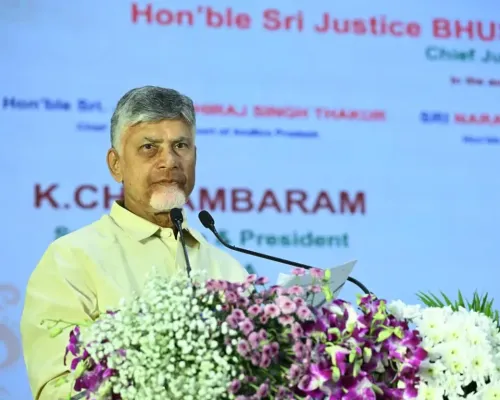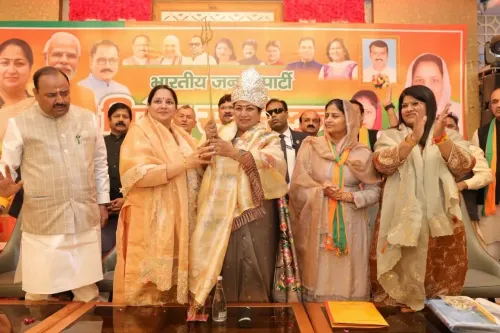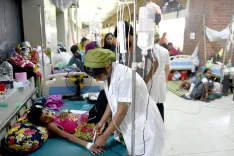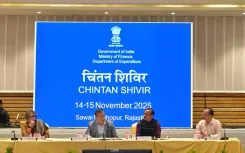Is the Yunus Regime's Anxiety Indicative of Awami League's Political Comeback in Bangladesh?

Synopsis
Key Takeaways
- The Awami League's lockdown has shown strong public support.
- The Yunus regime is displaying signs of anxiety about a political comeback.
- Public sentiment is increasingly against the current government.
- International scrutiny of the regime's actions is growing.
- Potential boycotts of upcoming elections may signal political instability.
Dhaka, Nov 16 (NationPress) The recent lockdown initiative by the Awami League in Dhaka has proven effective, with residents largely remaining indoors and public transportation seeing minimal activity. Coinciding with this, the chief adviser of Bangladesh's interim government, Muhammad Yunus, suggested a referendum on the July Charter and proposed general elections for February next year. However, this did little to alleviate the frustrations of citizens already weary of the regime's illegitimacy and poor governance. The anxiety exhibited by the Yunus administration reflects its escalating concern regarding the Awami League's potential return to political prominence in Bangladesh, as highlighted in a recent report.
On the very day the Yunus regime intended to announce the court's ruling on cases involving former Prime Minister Sheikh Hasina, the Awami League asserted its presence.
The lockdown served as a clear indication of the populace's discontent with the political dynamics orchestrated by the Yunus regime and the factions that have celebrated the Awami League's downfall, according to a report from NorthEast News.
Political entities like the Bangladesh Nationalist Party and Jamaat-e-Islami, who hoped to gain from the altered political landscape, were left astonished by the public's response to the lockdown.
NorthEast News reported, "The regime and its legal representatives have now announced that the verdict regarding Sheikh Hasina, who remains constitutionally recognized as Bangladesh’s Prime Minister, will be released on November 17. The prevailing sentiment among the public suggests that the outcome has already been foreshadowed by the regime's recent statements."
"Sheikh Hasina could potentially face a 'death sentence'. Yet, in a nation that has recently witnessed a surge in public support for her—not limited to just Awami League followers—such a ruling from an unlawful court governed by a similarly illegitimate regime is of negligible significance. The regime's palpable nervousness underscores its mounting anxiety regarding the Awami League's revival in Bangladesh's political arena. The triumph of the lockdown has also placed all parties anticipating a share of power in February in a state of uncertainty," it continued.
The Yunus administration's animosity towards Sheikh Hasina and the momentum gained by the Awami League through her recent engagements with Western and Indian media have significantly influenced the current situation.
Reports indicate that the Yunus regime has resorted to silencing media criticism in Bangladesh regarding its actions.
According to NorthEast News, the Yunus regime is increasingly on edge as legal professionals and firms in nations like the UK have formally alerted international human rights organizations about the abuses faced by Awami League supporters and the Bangladeshi populace since last August. Lawmakers abroad have publicly denounced the regime's actions.
NorthEast News stated, "If the Awami League can replicate the support demonstrated during its lockdown on Thursday, it would indicate that leading up to February, public discontent regarding a vote that excludes the nation’s principal party will complicate matters further. Yes, elections may be imposed on the country in February. However, this will likely be an event boycotted by over 50 percent of the population, many of whom have historically supported the Awami League. That boycott will send a new message post-elections: the vote will be seen as a farce, necessitating fresh elections under a legally constituted caretaker government. The success of the lockdown paves the way for renewed hope regarding the restoration of the nation’s foundational principles.









